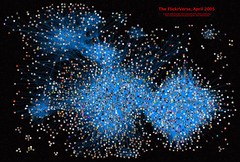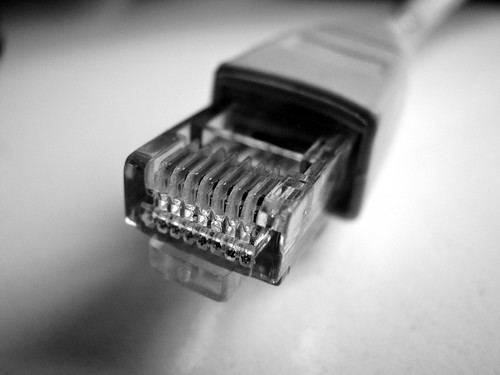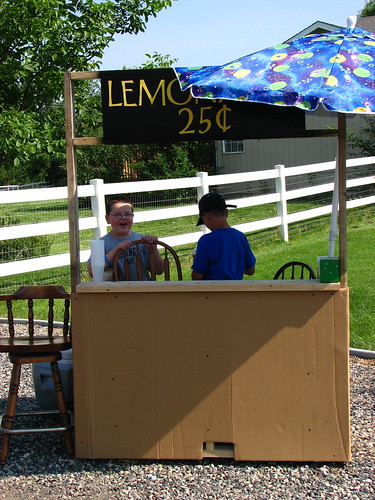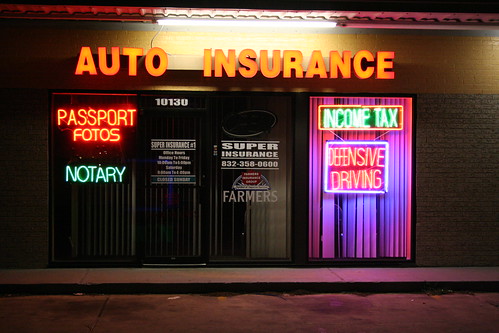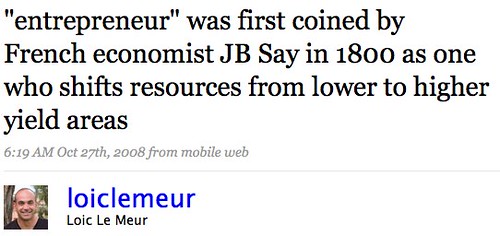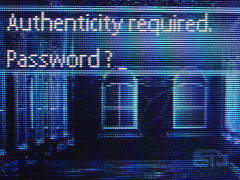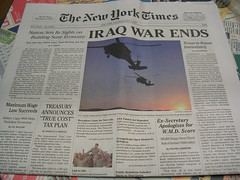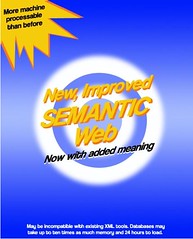I try to avoid writing about personal stuff on my blog (even my travel writing is like a tour guide talking, as opposed to a description of my day-to-day activities). However I thought I’d share this as you will understand both my past experience and future direction better – as after all, this blog is a conversation between you and me right? And I’m going to do it in one hit, because you won’t hear me navel gazing like this again for another ten years!
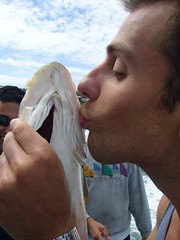
Basically, I’ve hit a milestone in my life in whatever way you look at it. I completed the two-year postgraduate diploma which has had me locked in a room; completed the three-years mentored work experience that accompanies the diploma; and completed my formal education goals, which if you count my three-year undergraduate degree, has taken six years (seven if you count the year I took off to travel). At 17, I made the decision to go down this path (well one of them) and now as a 24-year-old, I have finally made it.
So this is an explanation of what I’ve been doing and why. How things are evolving in my career are quite random. Hopefully this will have you understand how my background experiences lead me to where I am now.
A career in business – the undergraduate degree
At about the age of 15, I had decided to pursue a career in business in some way – don’t for a minute think I had any idea what that meant, but my dad suggested a Bachelor of Commerce which was about as broad as they get, so it seemed like a plan (I like vague and broad – allows flexibility). However in the next few years, I experimented with student media and based on the amazing feedback I received from everyone (my folks complained at parent teacher interviews, all they talked about was the newspaper and not my academic performance), I seriously contemplated a career as a journalist. Worried about what path to take, my father gave me some advice which sealed the deal and which was passed down from my grandfather’s experience who was a newspaper editor: “You will never be your own boss, kid”. The thought of me being paid terrible money and forever hostage to a superior authority, made me decide I can always write for fun but it would better to invest in an education that you can’t pick up easily without formal study. So business it was.
I received an okay mark in my final year of school (93.10%) and was accepted into the university and course of my choosing – a Bachelor of Commerce at the University of Sydney (you needed 93.00% – with my education, I seem to have a magic touch for doing just enough but not too much work). My eldest half-sister, a banker with JP Morgan at the time, told me her biggest regret was not becoming a Chartered Accountant. She told me to steer away from the subjects girls flock to, like marketing, and to do the more ‘hard’ subjects like accounting and finance. Even though I didn’t even do maths in my final year of school (all humanities, mostly history), I decided to pursue this path despite it not being something I was naturally good at. In retrospect, I decided finance was not for me in terms of a career choice and I regret not doing marketing. But I went along with the accounting thing – I could understand value in that if I wanted to become an executive one day.
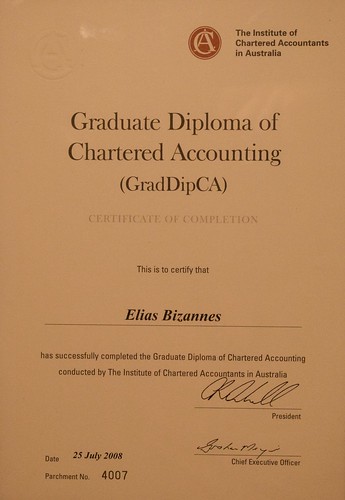
My undergraduate degree was simply a prerequisite to get into this course which I would start in 2006 and finish in 2008. I’m still in shock that I finally got through it
A career in media – the second curricula
I didn’t ignore my interest in journalism however. Six months in, I decided I wanted to start a newspaper because the crap on campus was exactly that. I also wanted to take aim at the mainstream media whose bias was repeatedly distorting our world. It turned out James Fraser, a guy I went to high-school with, wanted to do the same thing. My partner-in-crime approached this as a business venture, but I pushed for a society because I knew in 2.5 years I would be out of university and my motivation was to learn (not profit). And so we shook hands later in 2002 and created the Sydney University Journalists Society which grew to over 200 members.
In early 2003 after all the admin had been finalised, we went about creating our first product: “idMag”. Between the two of us, we did everything. I focused on the editorial and James more on the design, which we did at night. During the day, we would walk into small businesses and try to sell them advertising space based on a double-sided rate paper (ie, thin air delivered by two pimple-faced kids in suits). Of the dozens (hundreds?) of businesses we talked to, I would talk and James would give me immediate feedback on how to improve my sales pitch. I also tried calling the big companies (I think it was Vodafone), and will never forget getting absolutely roasted by a company’s advertising agency, who with her hard questions purposely demolished me to prove I was wasting her time (and perhaps intended, she taught me a valuable lesson about media). Nevertheless, we raised enough money to fund 4000 semi-colour 24 page magazines. I then learned one of my biggest lessons in the media world: distribution is key.
The magazine was a flop because without a distribution strategy, you don’t have an audience, and without an audience, you won’t have advertisers spending money on you again that second time around (so I assumed, I didn’t have the guts to re-approach our advertisers). During this time, I played with Microsoft Frontpage with blinking text and other cool (!) Frontpage features to create a website for the magazine, and after we published it, I decided to devote more attention to building it. It was in 2003 that I realised the future of media was on the Internet as the barriers to distribution were removed (so I thought, new barriers now exist -but sweet baby cheeses it was cheaper!). We experimented with a few other things that year, but I got distracted by an election to be voted on the campus newspaper I detested. I paraded around university telling people to “think outside of the box”. We didn’t get on, but I developed an awesome suntan.
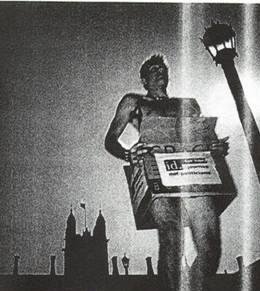
It’s funny to trawl through my online footprint because up until then I was a tech savvy consumer, but that’s all I was, because at the age of 13 I made a conscious decision to unhook my interest in computers to not become a “geek” (ie, learning how to code) and instead became a jock of sorts. Now in 2003, I invested some time in the Kuro5hin.org community, which had me learn the potential of online media communities. When I finally got an article approved, I moved on – I had enough of the trolls. But in my quest to build a new media organisation, I actively reached out and had to learn about things like registering & resolving a domain name, hosting a website, and teaching myself CSS to get that Drupal installation looking how I wanted. It was amateur stuff that seems stupidly basic now, but that’s how I learned.
In 2004 one of the products we launched, which was a weekly news digest, became an absolute hit (as I recently wrote about). When the year ended, I ended my tenure as President and got the green light that all subjects had been passed. But before I end this chapter, I will share that in November 2003 before my corporate finance exam, I had a Eureka moment that newspapers in the future would be printed using e-ink technology (probably from something I came across my favourite blog at the time, PaidContent.org). I researched the idea and in the process of doing this ended up putting together a business case to apply for the Yellow Pages business grant (my idea had evolved to an innovative model for advertising, which to this day, I am still thinking about as it overlaps with the VRM Project). I didn’t get the grant (or even make the finals) – but boy, when you do things like that, it opens your eyes up to things.
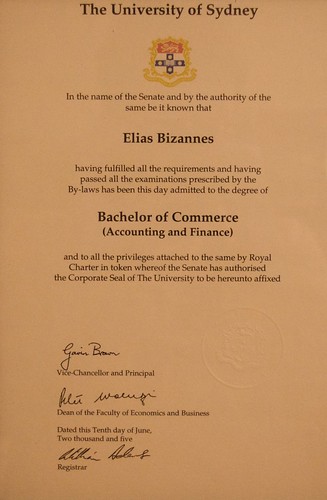
I left university with not just a degree in business, but a realisation that although I may never become a journalist, I was passionate about having a career in the business of media. And that the Internet was where it was at. It’s not something you will find on my undergraduate degree certificate, but it’s what I walked out of university thinking.
The corporate world
PricewaterhouseCoopers offered me a graduate job, following an early 2003 summer internship (60 positions, 1000 applicants). Having spent the last few years at a restaurant as a waiter, my discussions with the backpackers that came through the place made me itch to do a big trip overseas. And so in 2005, I managed to defer my contract (I got it in March 2004; deferred for up to two years) and went travelling for nine months (which is how this blog came into creation). I had always wanted to blog but never did because I didn’t want to keep an online diary – a travel blog seemed like the perfect opportunity to experiment with this form of media.
I returned from my trip and started as a graduate in December 2005 in the assurance practice (external audit), specialising in media & technology companies (our clients are Cisco, IBM, VeriSign, Getty Images, and a whole alphabet soup of that kind). However I couldn’t help myself with ideas that were flowing through my mind. And in April 2006, on a train, I wrote a to-do list note on my phone: “start a wiki at PwC”. It seemed stupidly obvious that the world’s biggest knowledge firm didn’t have a wiki (which was another experiment during my time at the Journalists Society that I thought was massive). Unfortunately, to get technologies like that switched on is not quite what you think. People that have been through the pain of creating change or innovating within a large organisation know exactly what I mean – and I was a nobody trying to influence people 15-30 years older than me in senior management.

I pitched the idea to my manager in May 2006, and she must have been having a bad day, because she ripped it to shreds. Slightly taken aback, I dropped it, but it stayed at the back of my mind. Then, after a nasty month of work in August, I repitched it to her with recent experience as examples and using the language she shot me down with (“I don’t know what you said differently, and I know it’s the same idea, but I like it now!). She gave me advice which I ended up ignoring, and went about determining a strategy to pitch it to the partners after my exam. Preparing for my first CA exam in October, I randomly came across Charlie Perry who it turns out had been wanting to set up a wiki at the firm as well. We met up, decided to “join forces”, and rolled. What happened next I would never have imagined.
We pitched the idea to a group that had recently formed, and who were called “Service Innovation”. It turned out there was a big problem in the firm that the boss of Service Innovation had to solve on order of the CEO. Fed with information, I wrote a formal business case for how Social Media could fix this problem. The idea was approved right up to the CEO level and I then went about implementing it which is a story in itself but not one I can publicly share :).
The tech industry
Just after we got the pilot approved, Charlie randomly flicked across an e-mail. We ended up getting in contact with Marty Wells who ran Dinner 2.0 and would invite us (I think he thought he could wrangle sponsorship money out of PwC!), and in February 2007 I started mingling with investors, entrepreneurs and other people in what was an exclusive Sydney networking event. Talking to Marty that night, I told him and others I had a business idea I wanted to work on. “Well there are going to be a lot of developers at Barcamp”. So I went to Barcamp, restarted this blog, and joined the APML workgroup which I thought was a brilliant solution to advertising. (Remember that business idea of mine at university? Things you research, “fail” in, and move on come back to haunt you in a good way).
I attended more events, made more friends, started building a presence. I gave Chris Saad from the APML workgroup introductions and advice on his product, and in return, he introduced me to more people – which is how I was invited to explore the concept of a workgroup around data portability so early on. In January 2008, that workgroup exploded in attention and I suddenly was working daily with people across all the different continents. Separately, my involvement in the local community made me passionate about it, and quite randomly actually, I created something that has been played up that I am some kind of Big Deal when in fact I’ve done nothing other than moderate spam messages, host some drinks and create some podcasts.
December 2008
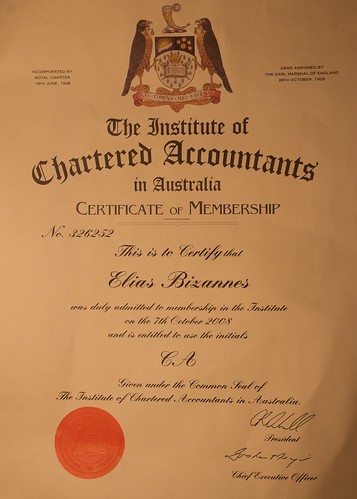
So here I am. Milestones and goals achieved. At this age, all I hoped to achieve was to become a CA (which I was formally admitted earlier this month). In the process I’ve done things I never would have imagined.
As you can see, accounting is simply a stepping stone to what I really want to do: build and run companies. It’s great having a goal, but now I’ve got to work out what comes next! I’ve got some ideas – like plucking myself out of my comfortable life here and living in Silicon Valley in the midst of raw innovation – but who knows. The only thing I do know is that you need to meet as many people as possible and genuinely build a relationship with them with no desire to get anything out of it. They will open doors for you when you least expect it – keep giving (it feels good anyway) and they will hit you on the head back with something one day. And secondly, when you have an idea, just do it. Expose yourself to random experiences – just participate and the dots will connect one day.
So in 2009, I’m going to jump and see where that leads me. Wish me luck!
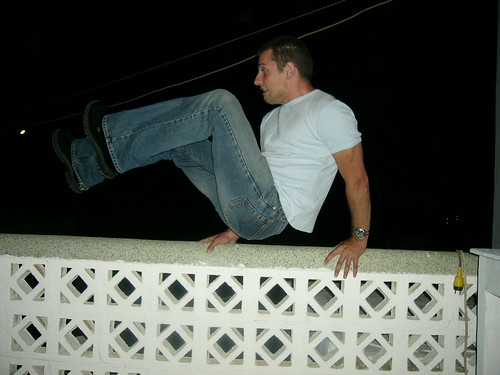
![]()

